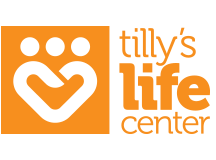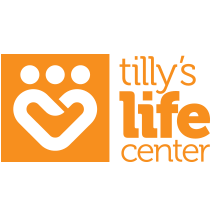
23 Jun Rebuilding Teens’ Social Skills Post-Pandemic
The teen years are an essential time for building social skills, forming friendships, and finding identity. When the pandemic took students out of the classroom for years during such a formative time, many young people struggled to re-discover themselves when faced with an entirely new normal. Now that many schools have returned to in-person learning, teens might likely still be adjusting to off-screen interaction, rebuilding their social skills, and even reigniting friendships.
We know that this can be an incredibly difficult situation for many teens who are making up for lost time and have become out of practice during social distancing. To assist you in helping your teen forge their identity and acquire a stronger social and emotional skill set, we have laid out our best tips for rebuilding social skills during pandemic through endemic times.
Screen Detoxing
Reentering in-person social spheres means teens are put through some level of screen detoxing. What has become a comfort zone with mute buttons and ‘off camera’ options is no longer available to them. Navigating this abrupt transition can be challenging, so invite them to engage in activities that can help ease this process. Filling free time with the fun habits they might have acquired during the pandemic such as walking in nature, journaling, painting, or baking can make them feel more within their comfort zone while also practicing healthy habits for physical and mental health. Staying involved in the routines that brought them joy, or finding new ones, can make a big impact on making the transition more accessible.
Getting Out
Teens can often end up spending the majority of their time in their rooms, especially when social distancing measures are in place. This additional time alone, exacerbated by the need to use technology, can make getting back out there and enjoying the real world with real people even more challenging. After forming these habits, it might mean that teens simply are not getting enough social time. To help, encourage your teen to take chances to get out of the house, safely of course. Try to get them excited about testing out new social skills activities for teens. Whether it is joining a club, adding an extracurricular activity, volunteering or simply taking a weekly walk with friends, getting out of the house and embracing the social aspects of in-person interaction on a regular basis can make a big impact on forming new, more sustainable habits.
Creating Convenience
Feeling isolated can be damaging to social skills and mental health and overall wellness. If your teen starts to exhibit behaviors of isolating or are lonely, it’s a big sign that they are not getting enough social time. Anything you can do to encourage them to spend more time with others is likely to have a positive impact, even if it is purely based on convenience or proximity. Time with siblings, cousins, family friends, or neighbors that are already within their social circle can help teens ease into life with increased social interaction. So, if possible, help your teen see the people in their lives more often. Encourage them to spend time with a range of ages doing a variety of activities. Playing games, exercising, or having meals together can be great ways to start. Bonus points if you can get them laughing and even better if they are the ones cracking the jokes!
Seizing Opportunities
Whenever possible, encourage your teen to take advantage of any low-risk social interactions that they might encounter. For example, if it is pizza night in your family, have your teen place the order over the phone or in person for everyone. Or, if your teen is exploring future career paths, you can suggest they request an informational interview with someone who inspires them in their field of interest. Any social situation that pushes teens to put themselves out there in ways they might not have had the opportunity to before, can help them maximize their communication strengths and fill in any gaps or weaknesses. Just a few small exercises like these per week can serve as a mini social skills training!
Going Slow
While you might anticipate that your teen will jump right back into the swing of things, in reality, it might be a struggle for them to adjust. If they don’t want to do something or need some quiet time to recharge, let them know that this is completely understandable. Forcing it can make them feel even more nervous or anxious and have the opposite of the intended effect. If they need to take it slow, that’s ok! Have them build up from their current habits to include more adventurous social activities over time. Encourage them to get out of their comfort zone when possible and go out to do things even if they are feeling a little bit nervous. Remind them that a few butterflies in their stomachs are natural!
Checking In
If your teen is struggling with readjusting to life in-person, be sure to offer your support. Make a mental note to have regular conversations with them. Check in on how they are doing and try to set aside time daily to weekly for quality time just talking. Any social time, even with a person they see every day can be helpful for teens to get more used to sustained social interaction. If you’re concerned, ask your teen to see if they could use some additional help. Check to see if they think they could benefit from social skills training for teens or additional teen mental health resources. If so, help them find the appropriate tools that work for them!
At Tilly’s Life Center, we believe that Social Emotional Learning is essential to teen growth, independence, and fulfillment. Time separated from peers and in-person interaction at school might have had a big impact on your teen’s progress building social skills during pandemic times. Our curriculum is part of a proactive approach to providing mental health resources for teens, educating them on how they can deal with difficult emotions and social situations in positive, productive, and healthy ways. To learn more, visit us at www.tillyslifecenter.org.


